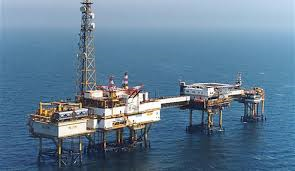Oil
Nigeria risks losing oil buyers to Iran, S’Arabia

LAGOS-Nigeria, which recently lost its Africa’s top oil producer status to Angola on the back of huge decline in its output, stands a chance of losing some of its traditional buyers to rival producers such as Iran and Saudi Arabia, industry experts have said.
Following the spate of production disruptions largely caused by the recent upsurge in militant attacks on oil infrastructure in the Niger Delta that have cut Nigeria’s output to the lowest in almost three decades, exports of the commodity from the country have taken a serious beating.
The nation relies heavily on earnings from oil exports, and the production cuts come as an additional headache for an economy that is already suffering from the sharp drop in oil prices since 2014.
Currently, four of the nation’s five largest export streams have been totally suspended as Forcados, Qua Iboe, Bonny Light and Brass River are under force majeure – a legal clause that allows the exporters to stop shipments without breaching contracts.
All but that of Qua Iboe was as a result of militant attacks.
Iran, which is engaged in a battle for market share in a bid to regain customers after years of curbed oil sales that crippled its economy, has ramped up its production and exports. Saudi Arabia, the biggest producer in the Organisation of Petroleum Exporting Countries, does not look set to rein in production.
An oil expert and Professor of Law and Co-Director, Institute for International and Immigration Law, Thurgood Marshall School of Law, Texas Southern University, United States, Emeka Duruigbo, in an emailed response to questions from our correspondent, said, “There is a real struggle to acquire or maintain market share by existing or fully returning players, notably Iran and Saudi Arabia.
“Venezuela is facing severe budgetary constraints verging on an economic calamity, a problem that can be ameliorated by extra income from additional oil sales, especially outside its OPEC quota.”
While noting that the US had recently removed a decade-long prohibition on export of crude oil, Duruigbo said, “Any opening created by Nigeria’s inability to meet its supply commitments is an invitation to these countries to exploit the gap and leverage their strengths. I would be deeply concerned if I were manning Nigeria’s economic ship at the moment.”
The Minister of State for Petroleum Resources, Dr. Ibe Kachikwu, had on May 16 put the drop in the nation’s oil output at 800,000 barrels per day following attacks and disruption of production in the Niger Delta.
With more disruptions seen since then, the nation’s output is said to have plunged by about 1.1 million bpd.
The Head of Energy Research, Ecobank Capital, Mr. Dolapo Oni, said, “Since that supply is no longer available for the market, it will give room for other producers such as Iran and Saudi Arabia to ramp up production and fill the gap. And that is what I expect to happen.
“There is a risk that Nigeria may lose its market share to those countries. But countries such as India like Nigerian crude,” he said, adding that other buyers in Asia such as Malaysia and Singapore might turn to other producers for their imports.
Iran is fulfilling its pledge to raise oil production and exports almost six months after western sanctions on the nation were lifted, surprising many analysts and commentators, the Financial Times reported last week.
Oilfields in the country pumped almost 3.6 million bpd in April, a level last reached in November 2011 before sanctions over its nuclear programme were tightened, said the International Energy Agency. Crude exports surged to two million bpd last month, just 200,000 bpd below late 2011 levels.
Iran was said to have shipped more crude oil to India, China and other countries it was permitted to sell to under sanctions. It has also re-established relationships with European buyers and secured new sales agreements with big international oil traders such as Vitol and Glencore, as well as energy majors such as Repsol of Spain.
Meanwhile, imports of Nigeria’s Liquefied Natural Gas by Japan fell by 22.3 per cent from a year earlier to 143,347 metric tonnes in April, according to Platts.
Japan’s LNG imports reached 6.4 million metric tonnes in April, down 3.3 per cent from a year ago, led by lower supply from Qatar and Nigeria, data released on Friday by the Ministry of Finance showed.
Oil
NNPC Targets 60% Methane Emission Reduction By 2031
The Nigerian National Petroleum Company Limited (NNPC) has unveiled a bold strategy to reduce methane emissions in the oil and gas sector by 60% by 2031, with an ultimate goal of achieving net-zero emissions by 2060.
This announcement reinforces Nigeria’s leadership role under the Global Methane Pledge initiative and its commitment to tackling climate change.
The Group Chief Executive Officer of NNPC, Mele Kyari, disclosed these plans during a meeting on Thursday with Robert Leahman, the U.S. State Department’s Global Methane Program Manager, and a delegation from Deloitte.
READ MORE: Atiku Gloats Over AUN’s Achievements Ahead Of 20th Anniversary
The discussions, held at the NNPC Towers in Abuja, focused on collaborative efforts to reduce methane emissions through innovative and sustainable practices.
“Reducing methane emissions is not just an environmental necessity but also a strategic imperative for Nigeria’s energy transition. We are leveraging partnerships to adopt global best practices and innovative solutions,” Kyari stated.
Key among these efforts is a pilot project in the Niger Delta, aimed at establishing emissions baselines, mitigating methane leaks, and promoting sustainable operations across Nigeria’s energy sector.
The project, a partnership between NNPC, Deloitte, and the U.S. Bureau of Energy Resources, will utilize data-driven methodologies to pinpoint and address methane hotspots.
Robert Leahman commended Nigeria’s proactive stance, describing it as a benchmark for other nations on the continent.
“Nigeria’s leadership under the Global Methane Pledge sets a standard for the continent. These initiatives will not only help reduce emissions but also drive sustainable development in the energy sector,” he said.
Kyari highlighted the broader benefits of addressing methane emissions, noting its significance for both environmental protection and economic efficiency.
“This collaboration is a game-changer. By addressing methane leaks, we’re reducing waste, saving costs, and protecting the environment. It’s a win-win for our economy and the planet,” he added.
Oil
FG Introduces New Incentives To Revitalize Nigeria’s Oil & Gas Industry
In a strategic move to revitalize Nigeria’s oil and gas sector, the Federal Government has unveiled two key fiscal incentives aimed at attracting investment and enhancing energy security.
The announcement was made by Mr. Wale Edun, the Minister of Finance and Coordinating Minister of the Economy on Wednesday.
The first initiative, the Value Added Tax (VAT) Modification Order 2024, introduces critical exemptions for essential energy products and infrastructure, including Diesel, Feed Gas, Liquefied Petroleum Gas (LPG), Compressed Natural Gas (CNG), Electric Vehicles, Liquefied Natural Gas (LNG) infrastructure, and Clean Cooking Equipment.
Read Also: Atiku Calls For Rotational Presidency Across Nigeria’s Geopolitical Zones
These exemptions are designed to reduce living costs for Nigerians, promote energy security, and accelerate the transition to cleaner energy alternatives.
The second initiative, the Notice of Tax Incentives for Deep Offshore Oil & Gas Production, offers new tax relief options for deep offshore exploration projects.
This measure aims to position Nigeria’s deep offshore basin as a premier destination for international oil and gas investments, boosting the country’s appeal to foreign investors.
These reforms are part of a broader set of policy initiatives, known as Policy Directives 40-42, endorsed by President Bola Ahmed Tinubu.
The directives reflect the administration’s commitment to fostering sustainable development in the energy sector and enhancing Nigeria’s competitive edge in the global oil and gas market.
Business
Tinubu set to approve ExxonMobil-Seplat oil deal, expands CNG bus initiative

By Yemie Adeoye
NIGERIA’s President Bola Tinubu has announced that the protracted ExxonMobil-Seplat upstream oil divestment will be formally approved by the Minister of petroleum within a matter of days, just as he announced his government’s intention to expand the Compress natural Gas, CNG buses initiative.
The President who stated this during his Independence day nationwide broadcast stated that the move is in line with his administration’s commitment to free enterprise, free entry and free exit in investments which is the hallmark of his administration investment policy.
“Fellow compatriots, our administration is committed to free enterprise, free entry, and free exit in investments while maintaining the sanctity and efficacy of our regulatory processes. This principle guides the divestment transactions in our upstream petroleum sector, where we are committed to changing the fortune positively. As such, the ExxonMobil Seplat divestment will receive ministerial approval in a matter of days, having been concluded by the regulator, NUPRC, in line with the Petroleum Industry Act, PIA. This was done in the same manner as other qualified divestments approved in the sector.”
The President also seized the opportunity to plead with Nigerians to be patient with his administration’s reform policies. “As your President, I assure you that we are committed to finding sustainable solutions to alleviate the suffering of our citizens. Once again, I plead for your patience as the reforms we are implementing show positive signs, and we are beginning to see light at the end of the tunnel”.
“Our energy transition programme is on course. We are expanding the adoption of the Presidential Initiative on Compressed Natural Gas for mass transit with private sector players. The Federal Government is ready to assist the thirty-six States and FCT in acquiring CNG buses for cheaper public transportation.
Fellow Nigerians, while we are working to stabilise the economy and secure the country, we also seek to foster national unity and build social harmony and cohesion. Our economy can only thrive when there is peace”. he enthused.






















